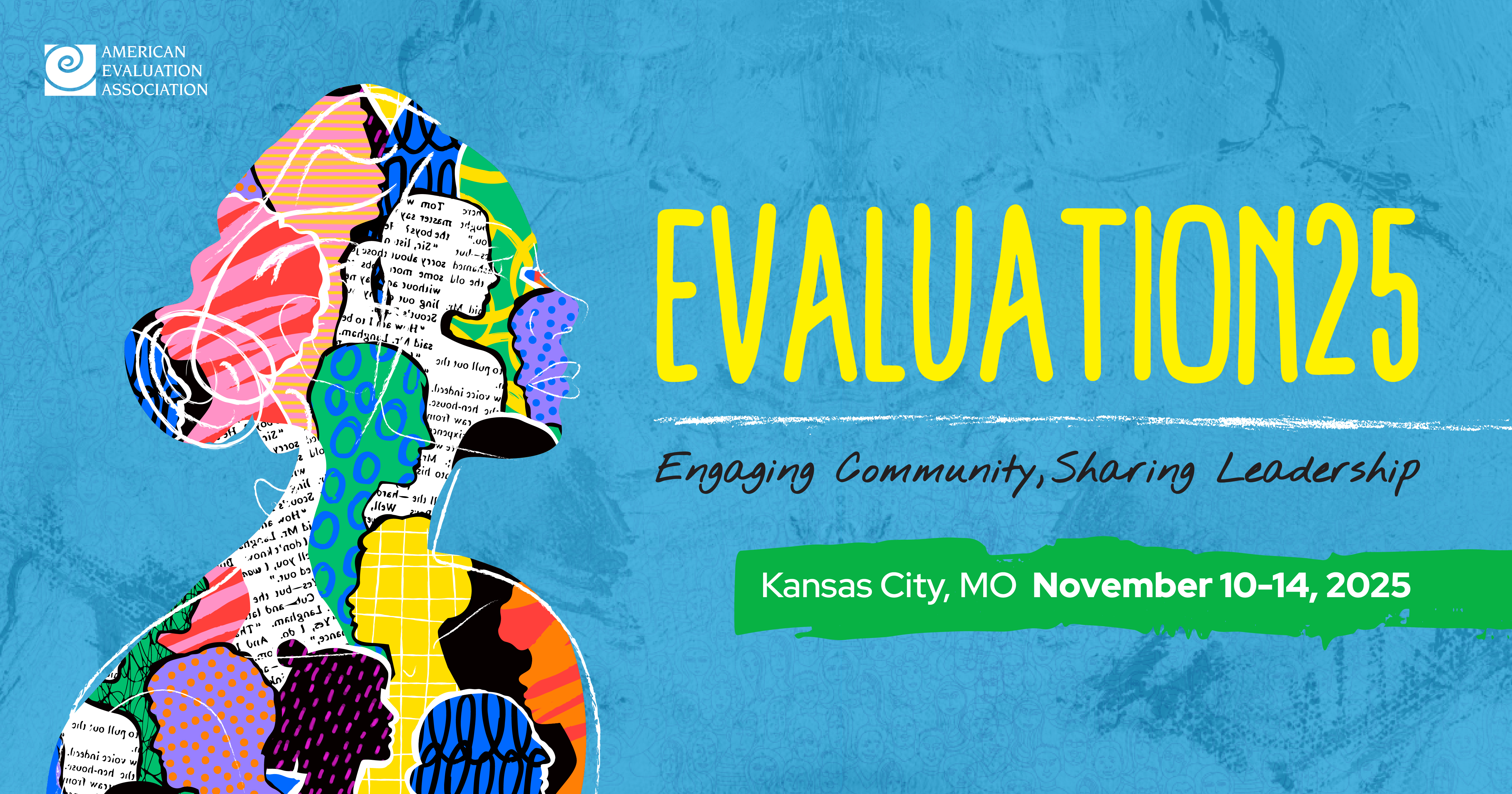
At the 2025 American Evaluation Association (AEA) Conference, our team at The Rucks Group is excited to contribute to this year’s theme, Engaging Community, Sharing Leadership, through three distinct sessions. Each session highlights practical, hands-on approaches that help evaluators and organizations move beyond reporting to truly leverage data for shared understanding and impact.
From structured sensemaking to responsible use of AI, and from collaborative tracking to geospatial analysis, our presentations offer tools and strategies that strengthen engagement, transparency, and decision-making. Whether you’re looking to bring more voices into evaluation, enhance analytic capacity, or visualize data in new ways, these sessions are designed to leave you with immediately applicable insights.
Below, you’ll find details on each of our presentations:
Wednesday, November 12, 2025 | 11:30a-2:15p CT
In evaluation, data alone is not enough—what matters is how we make sense of it. Sensemaking is a structured, participatory process that helps evaluators and project teams work together to interpret data, surface assumptions, and generate shared understanding. By fostering deeper engagement and collaboration, sensemaking strengthens evaluation use and ensures findings are relevant and actionable. When used effectively, sensemaking transforms evaluation from a reporting exercise into a dynamic process that engages communities, supports shared leadership, and fosters transformative change—the core pillars of AEA’s 2025 theme.
This workshop introduces practical sensemaking tools that support evaluation across diverse contexts, from small-scale initiatives to large, multi-site projects. Participants will explore tools for tracking project activities, facilitating structured discussions, improving decision-making, and creating opportunities for shared leadership in evaluation.
Participants will explore the following tested tools for:
Through hands-on exercises, participants will engage with spreadsheet templates and structured tools to support project monitoring and data-driven reflection. They will explore case studies where these approaches have been used to foster shared understanding across teams, improve transparency, and align evaluation with decision-making.
The session directly aligns with AEA 2025’s theme of Engaging Community, Sharing Leadership by providing tools that:
Rather than simply discussing collaborative and participatory evaluation, this session provides tangible tools for applying these principles in practice. Participants will leave with immediately useful approaches for leveraging various technologies and tracking tools to enhance project reflection, decision-making, and evaluation impact, whether working with community-driven initiatives, organizational learning efforts, or large-scale federally funded projects.
Presenters: Chris Cox, Ph.D., Kathleen Dean, Ph.D., Jenn Billman Ph.D.
Thursday, November 13, 2025 | 4:25p-4:30p CT
Generative AI tools can support inclusive, community-engaged evaluation by integrating community voices throughout the evaluation process; however, integrating new tools effectively and efficiently can be challenging. We will share our firm’s experience integrating and internally evaluating generative AI tools, including Fireflies.ai, Notebook LM, and Custom GPTs, to process large volumes of qualitative data and enhance analytic capacity while preserving community voice. These tools, new to many evaluators, help triangulate diverse inputs across the evaluation lifecycle for more robust synthesis than human analysis alone. We also address ethical considerations (e.g., data privacy, security, and environmental impact) and demonstrate how well-engineered prompts and triangulation across AI systems improve output quality and reliability. These tools empower communities by integrating more of their voice into the evaluation process, enabling informed decision-making, equitable participation, and shared governance of evaluation outcomes. Attendees will gain practical and ethical insights for thoughtfully integrating AI into their evaluation contexts.
Presenters: Maggie Jaeger, Ph.D., Chris Cox, Ph.D., Emmy Royse, Ph.D.
Friday, November 14, 2025 | 2:00p-3:00p CT
Geospatial technology transforms the way evaluators assess project performance by providing a spatial dimension to data analysis, making evaluation insights more actionable and accessible. By integrating spatial insights, evaluators can visualize key metrics, support data-driven decision-making, and enhance community engagement. This demonstration will showcase how geospatial tools—including ArcGIS Online, Survey123, maps, dashboards, Business Analyst Online, and story maps—can be applied to evaluation workflows. Participants will learn how to collect and integrate spatial and non-spatial data, map project impacts, and apply spatial analysis techniques to uncover trends and inform strategic decisions. Through live demonstrations and real-world case studies, attendees will see how these tools improve project assessment and transparency. Participants will gain practical knowledge to incorporate geospatial tools into their evaluation practice, fostering greater collaboration, accessibility, and impact in their work. This session aligns with the Engaging Community, Sharing Leadership theme by promoting transparency, participatory approaches, and shared decision-making.
Presenters: Alyssa Hokky, P.S.M., Nicole Ernst, M.A. (Harrisburg Area Community College), Allen Toombs, M.B.A., Jenn Billman, Ph.D.